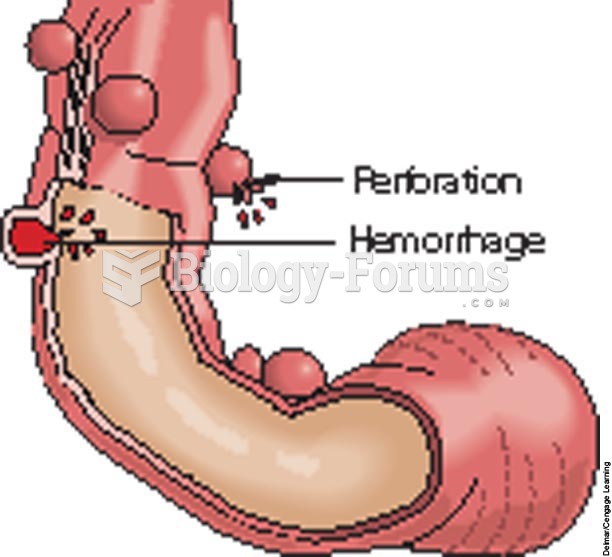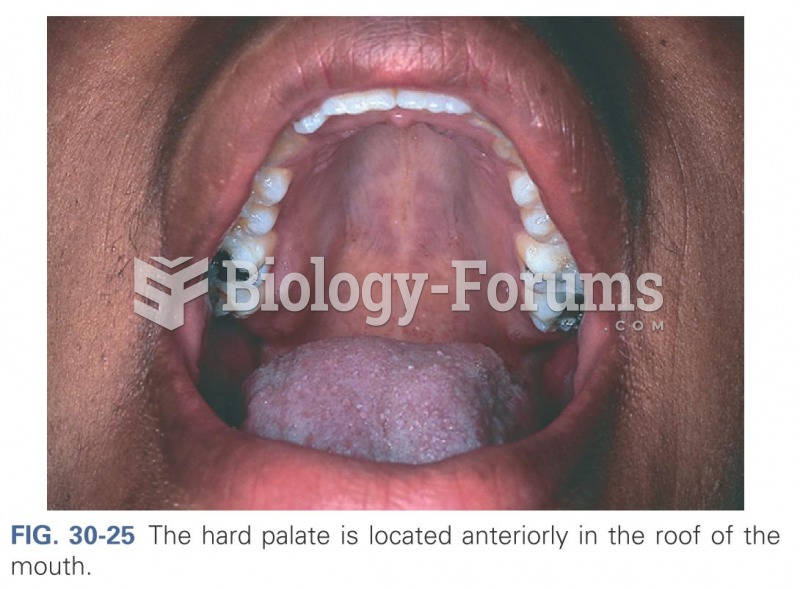|
|
|
About 600,000 particles of skin are shed every hour by each human. If you live to age 70 years, you have shed 105 pounds of dead skin.
Cutaneous mucormycosis is a rare fungal infection that has been fatal in at least 29% of cases, and in as many as 83% of cases, depending on the patient's health prior to infection. It has occurred often after natural disasters such as tornados, and early treatment is essential.
Increased intake of vitamin D has been shown to reduce fractures up to 25% in older people.
Patients who cannot swallow may receive nutrition via a parenteral route—usually, a catheter is inserted through the chest into a large vein going into the heart.
Once thought to have neurofibromatosis, Joseph Merrick (also known as "the elephant man") is now, in retrospect, thought by clinical experts to have had Proteus syndrome. This endocrine disease causes continued and abnormal growth of the bones, muscles, skin, and so on and can become completely debilitating with severe deformities occurring anywhere on the body.
 Diverticula in the sigmoid colon. Diverticulosis is almost always located in the descending or sigmo
Diverticula in the sigmoid colon. Diverticulosis is almost always located in the descending or sigmo
 Midway Island, an inhospitable atoll acquired in 1867, was valuable as a military base located midwa
Midway Island, an inhospitable atoll acquired in 1867, was valuable as a military base located midwa





